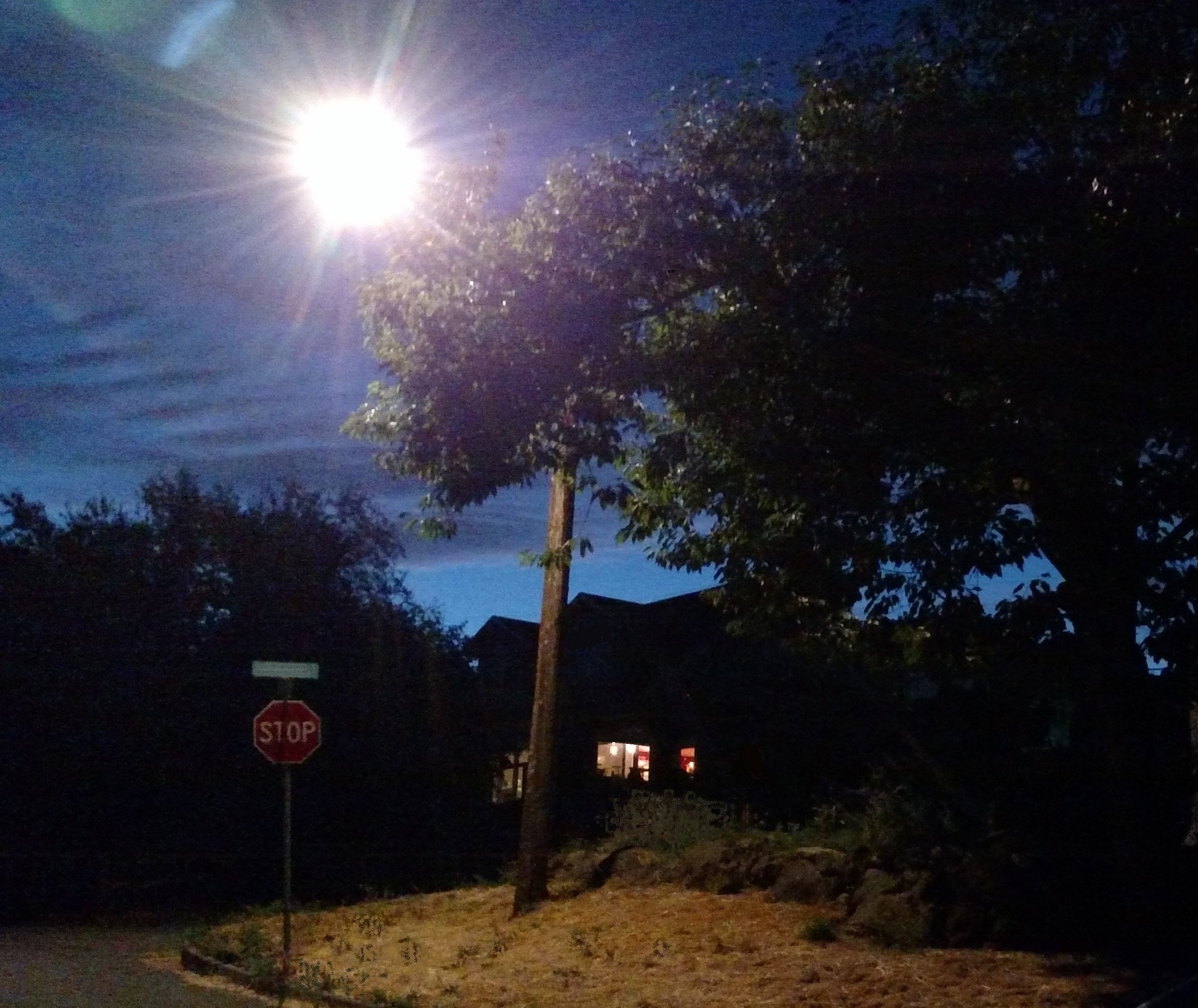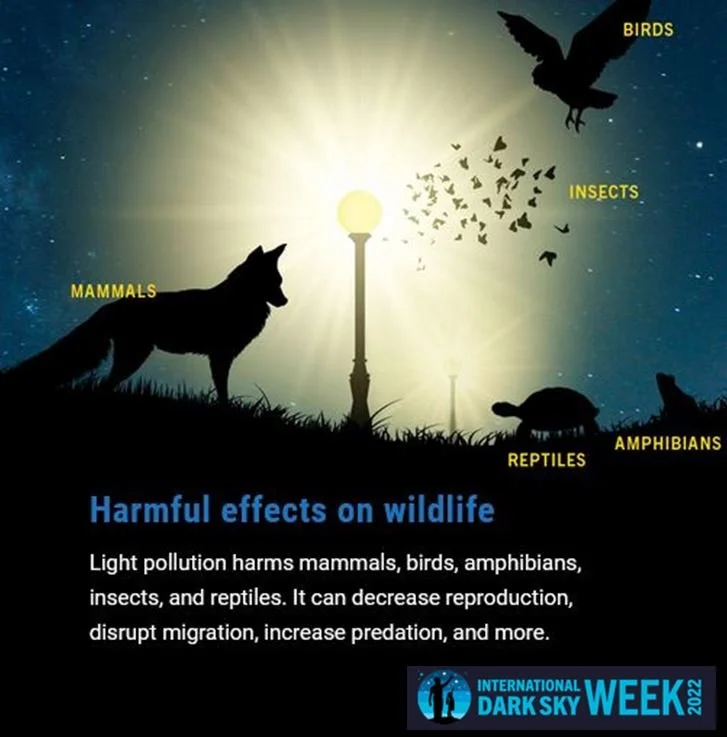Light pollution - Dark Skies are not just for the Birds! April 25 Presentation
The Milky Way is seen arcing over the Gorge with the lights of Mosier reflected in the Columbia River. The bright white glow rising over Sevenmile Hill is The Dalles. The orange glow rising over the horizon left of Lyle originates from Tri-Cities 115 miles east. Photo by Michael McKeag
From Mountain View Grange:
April is Earth Month, peak bird migration, and International Dark Sky Week (April 22-30). It's a perfect time to talk about light pollution.
"For eons, the night was lit only by the moon and stars, and life on this planet evolved under regular cycles of bright days and dark nights. The night we know now is liberally colonized with artificial light—from billboards to parking lots to street lights—even while we sleep. Not only does this obscure the Milky Way from 80% of North Americans where they live, but the overabundance of light at night also has dire ecological consequences—for the millions of migrating birds that use the stars to navigate, as well as for nesting birds, mammals, amphibians, fish, invertebrates and plants, and even human health" (quote by Mary Coolidge).
An unshielded LED street light creates glare, skyglow and light trespass. Proper shielding can prevent the unwanted light.
These days it's not uncommon to experience light that is so bright at the source, the surrounding is obscured. When super-bright street or headlights make you squint in discomfort, you are experiencing "glare". "Skyglow" (brightening of sky over inhabited areas) and "light trespass" (light that falls where it isn’t intended or needed) are also forms of light pollution. Light becomes pollution when it’s not serving a purpose. The International Dark-Sky Association (IDA) believes that at least 30 percent of all outdoor lighting in the United States is wasted due to unshielded light on streets and in parking lots. That is an energy waste and contributes to our carbon footprint. Light pollution has intensified with the rise of LED's which are energy saving, but can be too bright and too blue.
Putting Dark Sky lighting into practice is very do-able. It doesn't mean towns shrouded in darkness without stop lights. It does mean quality outdoor-lighting ordinances, an educated populace, and the thoughtful placement of lighting. By using the right amount of light, in the right place, at the right time, we can maintain safe and vibrant night-scapes. The best way to curb light pollution is to avoid lighting up places that don’t need to be illuminated.
Introducing the Presenters
Mary Coolidge has been on Portland Audubon’s Conservation team since 2008. Today she serves as Audubon’s BirdSafe Campaign Coordinator, working to reduce hazards for birds in the built environment. Mary is dedicated to improving efforts to make urban environments more hospitable to wildlife and helping connect people to nature and place. Mary splits her time between Portland Audubon and the Oregon Zoo’s California Condor breeding program.
Michael McKeag is a board member of the Oregon chapter of the International Dark-Sky Association. He and his wife live on 40 acres east of Mosier. He is an amateur astronomer, and wrote the monthly column “Night Sky Over Mosier”. He served on the organizing committee for the 2016 Gorge Night Sky Conference, leading to a proposal that night sky quality be included in a Gorge Commission Vital Sign Indicators program. That proposal may soon be implemented. Mike will provide an overview of the impact of light pollution on the Columbia River Gorge National Scenic Area.
Join the LIVE presentation or ZOOM, Monday April 25, 7:00pm to 8:30pm at The Mt View Grange, 1085 N Main Ave, White Salmon. Find the Zoom link at http://www.grange.org/mountainviewwa98/ . The free presentation is sponsored by the Mt View Grange and is part of Columbia Gorge Climate Action Network's Earth Month, featuring environmentally themed activities and presentations throughout April (CGCAN.org).



